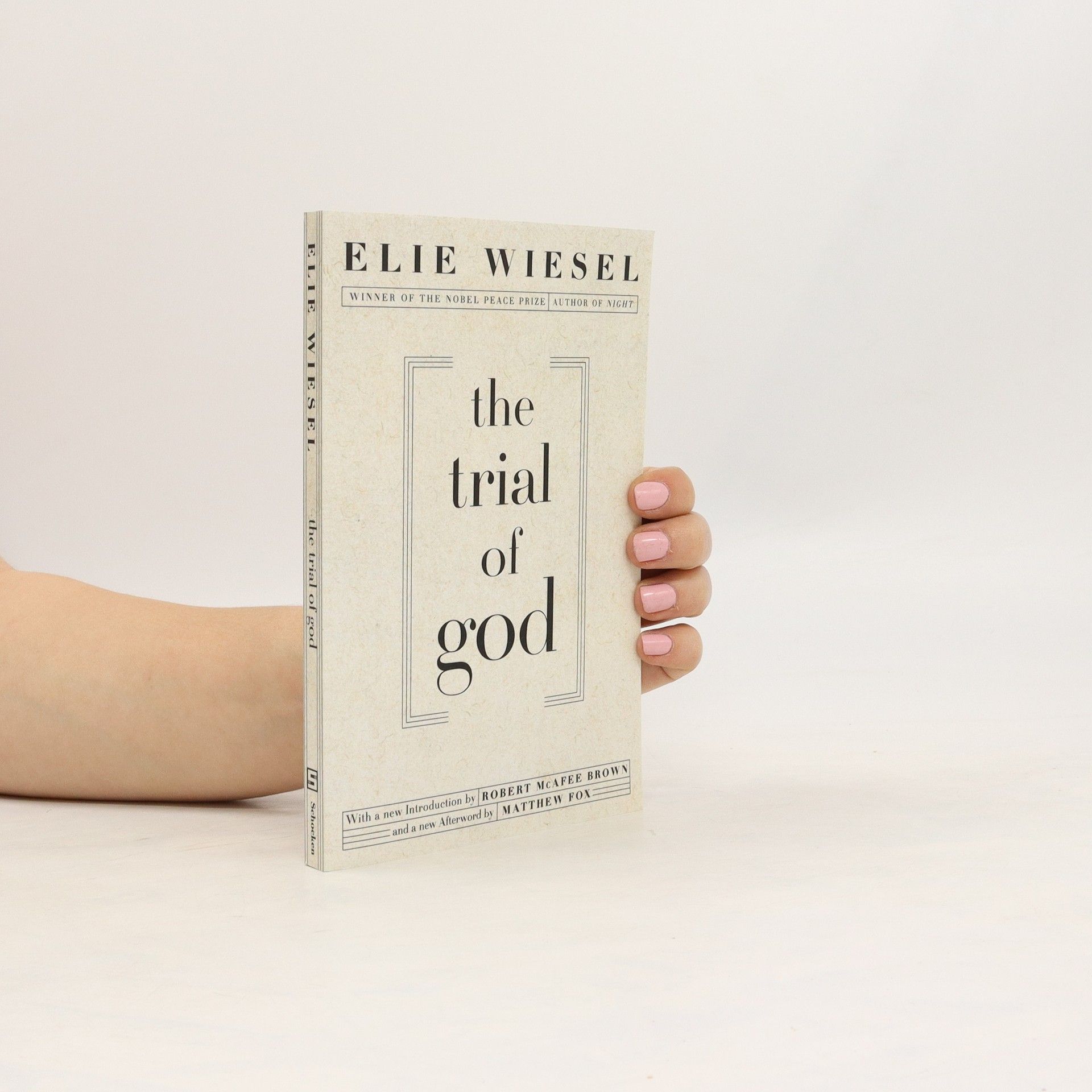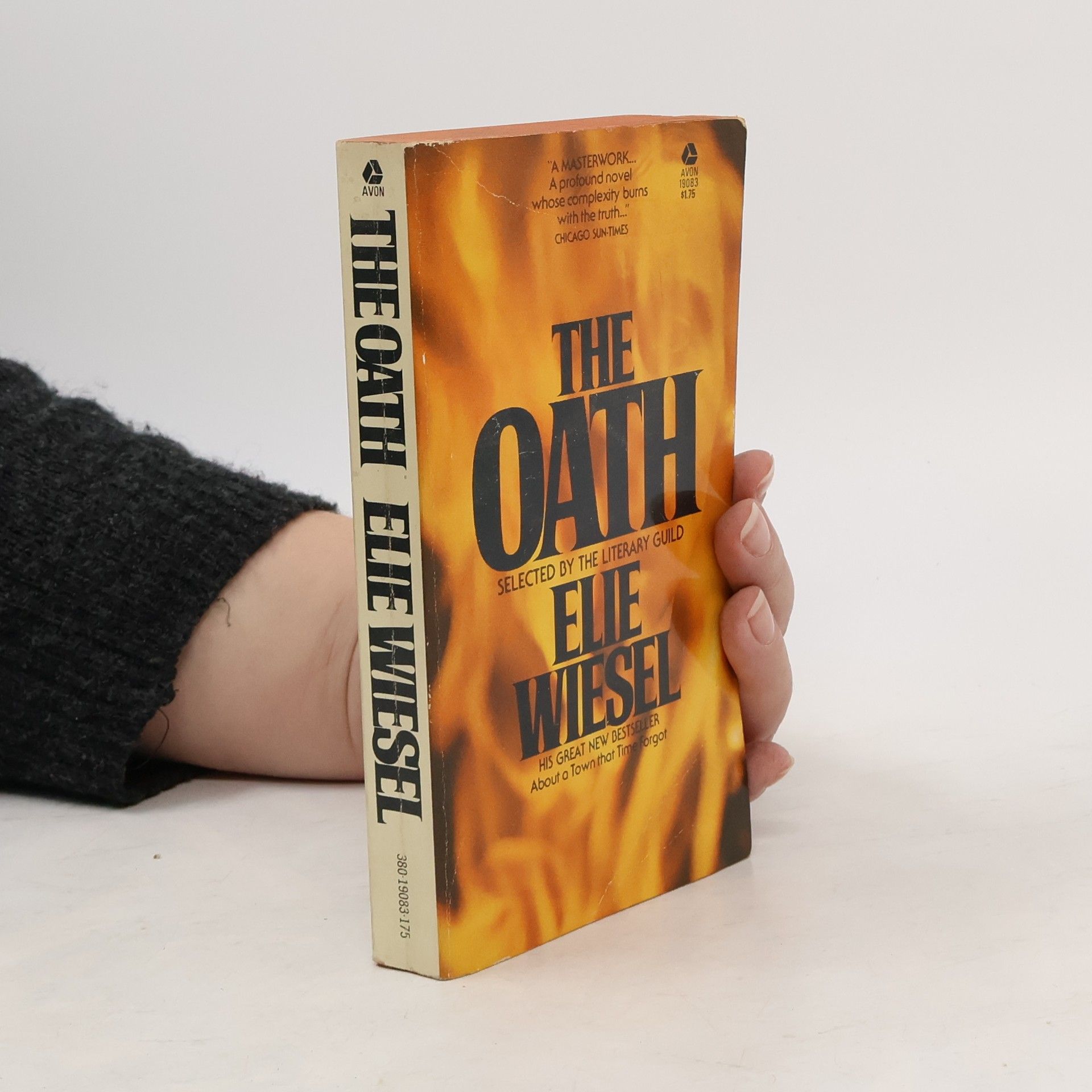Skutočný príbeh z obdobia 2. svetovej vojny Od chvíle, keď Rajchman prišiel do Treblinky, až do okamihu, keď z nej utiekol, stretával sa len s hladom, chorobu a všadeprítomným strachom. Okrem toho sa hneď na začiatku musel vyrovnať so zdrvujúcou stratou vlastnej sestry, ktorá prišla do Treblinky spolu s ďalšími ženami a ich deťmi. Vo svojom memoári Rajchman detailne opisuje kruté zaobchádzanie nacistov s miliónmi ľudí. Rozpráva o pekelnom rozdeľovaní prác, prostredníctvom ktorého uskutočňovali kruté vyhladzovanie. Rajchman začínal ako holič žien, ktoré boli následne posielané do plynových komôr. Neskôr mu ponúkli ďalšiu prácu v tajnej zóne tábora – prenášal telá ľudí udusených oxidom uhoľnatým, ktoré tento plyn často menil na nepoznanie. O niečo neskôr bol preradený na prácu, ktorá ho poznačila na celý život – stal sa tzv. zubárom, čo znamená, že mŕtvolám nútene vytrhával zuby a oberal ich aj o ďalšie cennosti. Tento pekelný memoár zachytáva autentický príbeh človeka, ktorý prežil nacistické zverstvá, aby mohol rozprávať príbehy miliónov ľudí, ktorí holokaust neprežili.
Elie Wiesel Libri
Elie Wiesel, vincitore del Premio Nobel per la Pace, è noto principalmente come narratore degli orrori dell'Olocausto. Le sue opere approfondiscono temi come la memoria, la perdita e la ricerca dell'umanità di fronte a sofferenze inimmaginabili. La prosa di Wiesel, spesso tratta dalle sue stesse esperienze strazianti, funge da potente testimonianza e da appello alla pace e alla dignità umana. Il suo messaggio risuona attraverso le generazioni, esortando i lettori alla riflessione e alla compassione.

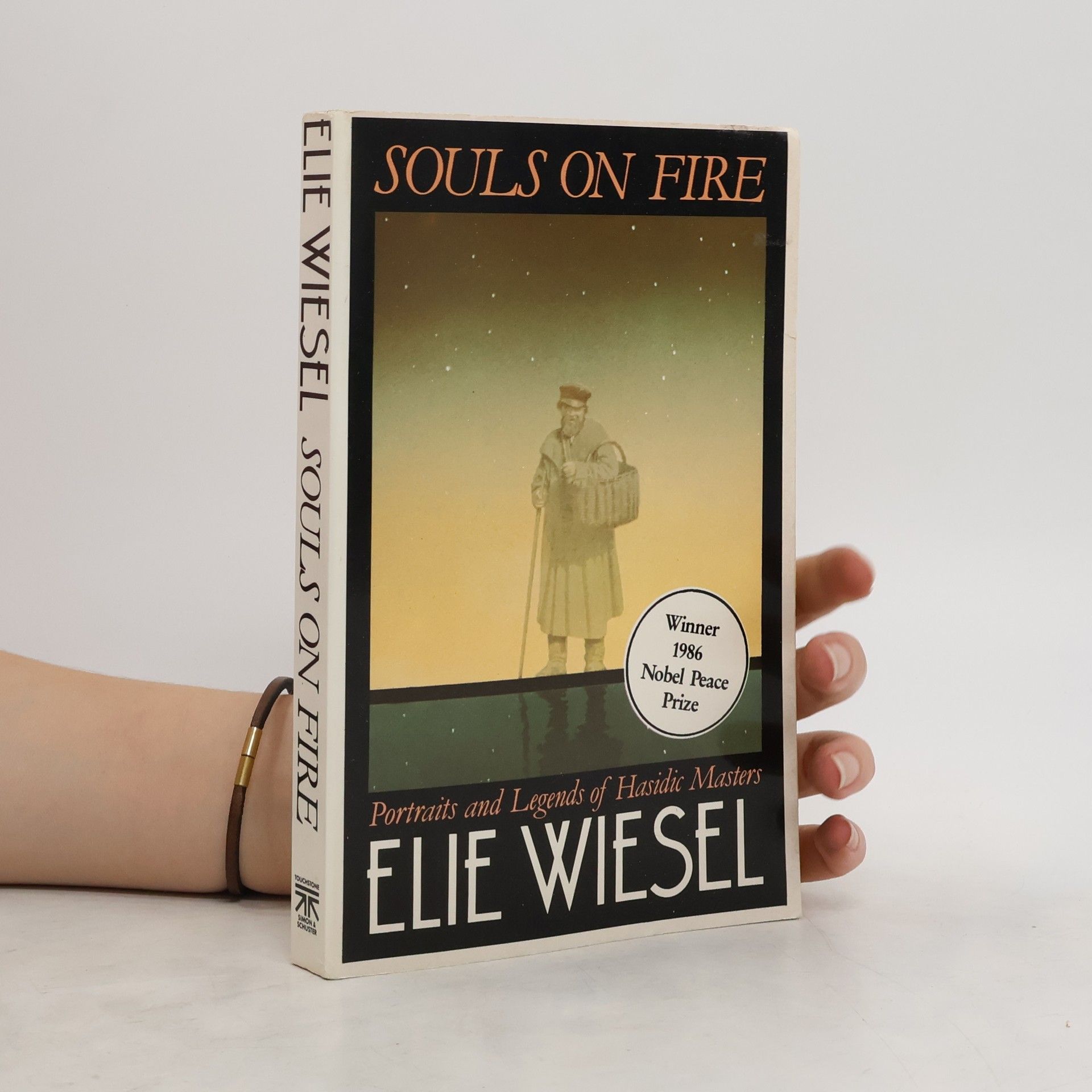

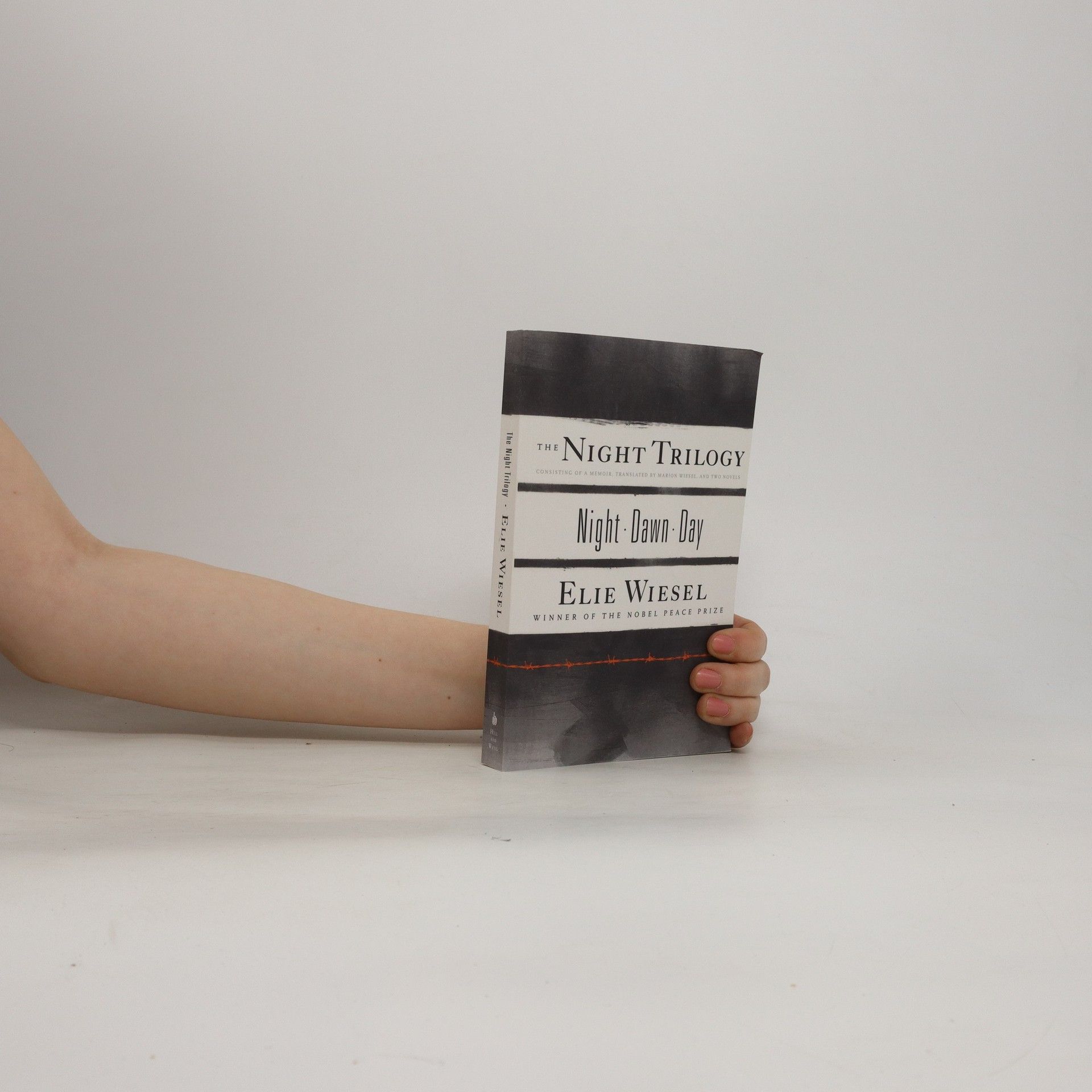

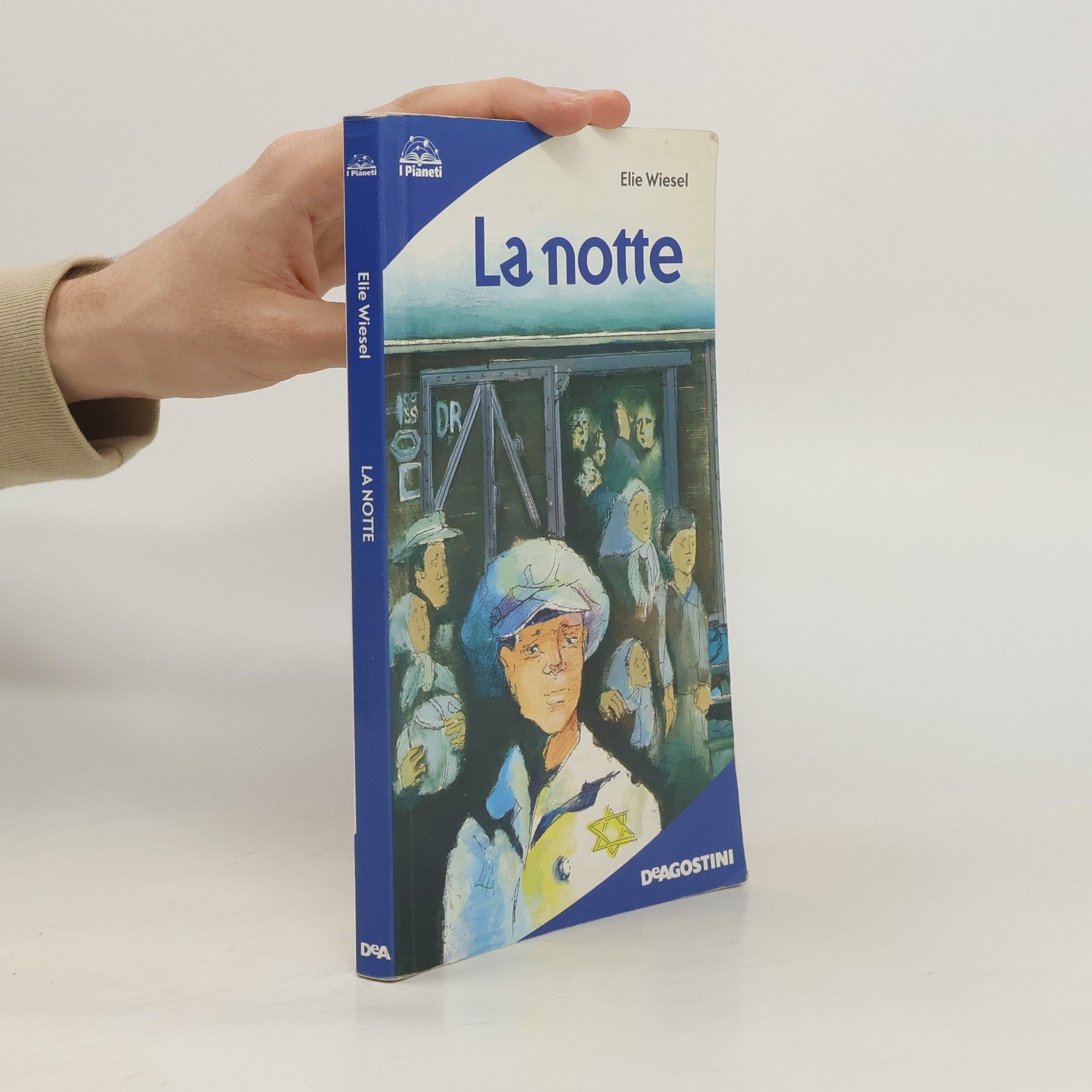

La notte
- 192pagine
- 7 ore di lettura
Ciò che affermo è che questa testimonianza, che viene dopo tante altre e che descrive un abominio del quale potremmo credere che nulla ci è ormai sconosciuto, è tuttavia differente, singolare, unica. (...) Il ragazzo che ci racconta qui la sua storia era un eletto di Dio. Non viveva dal risveglio della sua coscienza che per Dio, nutrito di Talmud, desideroso di essere iniziato alla Cabala, consacrato all'Eterno. Abbiamo mai pensato a questa conseguenza di un orrore meno visibile, meno impressionante di altri abomini, ma tuttavia la peggiore di tutte per noi che possediamo la fede: la morte di Dio in quell'anima di bambino che scopre tutto a un tratto il male assoluto? (dalla Prefazione di F. Mauriac).
The Tale of a Niggun
- 64pagine
- 3 ore di lettura
The narrative poem explores profound themes of history, immortality, and the transformative power of song, set against the backdrop of a real event from World War II. Accompanied by stunning full-color illustrations from acclaimed artist Mark Podwal, the work captures the emotional depth and significance of the subject matter, inviting readers to reflect on the impact of war and memory through its poignant verses.
Three works deal with a concentration camp survivor, a hostage holder in Palestine, and a recovering accident victim.
In this concluding volume of his poignant memoirs, Elie Wiesel, now a renowned writer at forty, resolves to advocate more vigorously for Holocaust survivors and the marginalized. He declares, "I will become militant. I will teach, share, bear witness." His words become his weapon as he embarks on a journey filled with unwavering battles. Wiesel engages with world leaders and travels to conflict-ridden regions to address pressing global issues. He defends persecuted Jews and dissidents in the Soviet Union, fights against apartheid in South Africa while supporting Mandela, and calls attention to atrocities in Cambodia and Bosnia. As an emissary for President Clinton, he visits refugee camps in Albania and Macedonia. He criticizes Ronald Reagan for his visit to Bitburg and supports Lech Walesa while challenging some of his views. Wiesel confronts Francois Mitterrand over misrepresentations of his past and battles Holocaust deniers. He joins young Austrians protesting against rising fascism and is awarded the Nobel Peace Prize. Throughout his journey, Wiesel remains deeply connected to Israel, reflecting on its leaders and internal conflicts. He recounts the establishment of the Holocaust Museum in Washington, D.C., shares his emotional return to Auschwitz, and remembers his lost family and Yitzhak Rabin.
Souls on Fire
- 288pagine
- 11 ore di lettura
In Souls on Fire: Portraits and Legends of Hasidic Masters , Elie Wiesel re-enters, like an impassioned pilgrim, the universe of Hasidism.Souls on Fire is not a simple chronological history of Hasidism, nor is it a comprehensive book on its subject. Rather, Elie Wiesel has captured the essence of Hasidism through tales, legends, parables, sayings, and deeply personal reflections. His book is a testimony, not a study. Hasidism is revealed from within and not analyzed from the outside. "Listen attentively," Elie Wiesel's grandfather told him, "and above all, remember that true tales are meant to be transmitted—to keep them to oneself is to betray them." Wiesel does not merely tell us, but draws, with the hand of a master, the portraits of the leaders of the movement that created a revolution in the Jewish world. Souls on Fire is a loving, personal affirmation of Judaism, written with words and with silence. The author brings his profound knowledge of the Bible, the Talmud, Kabbala, and the Hasidic tale and song to this masterpiece, showing us that Elie Wiesel is perhaps our generation's most fervid "soul on fire."
The Fifth Son
- 208pagine
- 8 ore di lettura
Reuven Tamiroff, a Holocaust survivor, has never been able to speak about his past to his son, a young man who yearns to understand his father's silence. As campuses burn amidst the unrest of the Sixties and his own generation rebels, the son is drawn to his father's circle of wartime friends in search of clues to the past. Finally discovering that his brooding father has been haunted for years by his role in the murder of a brutal SS officer just after the war, young Tamiroff learns that the Nazi is still alive. Haunting, poetic, and very contemporary, "The Fifth Son "builds to an unforgettable climax as the son sets out to complete his father's act of revenge.
The Trial of God
- 177pagine
- 7 ore di lettura
Where is God when innocent human beings suffer? This drama lays bare the most vexing questions confronting the moral imagination.Set in a Ukranian village in the year 1649, this haunting play takes place in the aftermath of a pogrom. Only two Jews, Berish the innkeeper and his daughter Hannah, have survived the brutal Cossack raids. When three itinerant actors arrive in town to perform a Purim play, Berish demands that they stage a mock trial of God instead, indicting Him for His silence in the face of evil. Berish, a latter-day Job, is ready to take on the role of prosecutor. But who will defend God? A mysterious stranger named Sam, who seems oddly familiar to everyone present, shows up just in time to volunteer. The idea for this play came from an event that Elie Wiesel witnessed as a boy in Auschwitz: "Three rabbis--all erudite and pious men--decided one evening to indict God for allowing His children to be massacred. I remember: I was there, and I felt like crying. But there nobody cried."Inspired and challenged by this play, Christian theologians Robert McAfee Brown and Matthew Fox, in a new Introduction and Afterword, join Elie Wiesel in the search for faith in a world where God is silent.
The autobiography begins with Elie Wiesel's poignant childhood in a loving Jewish family in Sighet, Romania, before transitioning to the harrowing experiences of Auschwitz and Buchenwald. It captures his spiritual struggles and eventual role as a voice for Holocaust victims and survivors, as well as his advocacy for the State of Israel and broader humanitarian issues. The volume is enriched with 16 pages of black-and-white photographs, providing a visual context to his powerful narrative.
The Oath
- 286pagine
- 11 ore di lettura
When a Christian boy disappears in a fictional Eastern European town in the 1920s, the local Jews are quickly accused of ritual murder. There is tension in the air. A pogrom threatens to erupt. Suddenly, an extraordinary man—Moshe the dreamer, a madman and mystic—steps forward & confesses to a crime he didn't commit, in a vain attempt to save his people from certain death. The community gathers to hear his last words—a plea for silence—& everyone present takes an oath: whoever survives the impending tragedy must never speak of the town’s last days & nights of terror. For fifty years the sole survivor keeps his oath—until he meets a man whose life depends on hearing the story, & one man’s loyalty to the dead confronts head-on another’s reason to go on living. One of Wiesel’s strongest early novels, this timeless parable about the Jews & their enemies, about hate, family, friendship & silence, is as powerful, haunting & significant as it was when first published.

